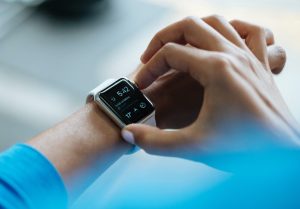Individuals that stand to benefit most from incorporating wearable health devices such as fitness bands and smartwatches also happen to be the least likely to actually use them, according to new preliminary research that is due to be presented at the American Heart Association’s Scientific Sessions 2022. The unsurprising metrics, supported by anecdotal as well as scientific evidence showing that many of the least healthy U.S. populations outright distrust medical systems and ignore their doctors’ directives, were derived from analyzing health information from a nationally representative sample of more than 9,000 adults who responded to the Health Information National Trends Survey (HINTS) in 2019-2020.
Using cardiovascular disease patients as a sample group, researchers poured over their responses to the inquiry of whether they had used a wearable device to track their physical activity or health in the last year, cross-referencing the answers by the respondent’s age, gender, race, ethnicity, education level, income, and even their willingness to share the data logged by their wearables. Only 18% of those with cardiovascular disease and 26% of those at risk for developing associated diseases used wearables. Comparatively, wearables are a part of everyday life for 29% of the total U.S. adult population.
“Even though the survey did not ask participants about specific types of wearable devices, examples of wearable devices were included to help respondents answer the question about whether or not they had used a wearable device in the previous 12 months,” said study lead author Lovedeep S. Dhingra, MBBS, a postdoctoral research fellow in the Cardiovascular Data Science (CarDS) Lab at the Yale School of Medicine in New Haven, Connecticut. “The most common wearable devices included smartwatches and fitness bands at the time of the survey, though the category continues to expand to include other devices.” Other figures from the research supported the notion that advanced age as well lower income and education levels were indicative of an overall distrust of wearables and a tendency to be at least somewhat inconsistent with their use.























